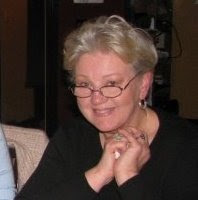He is a Republican Congressman from Texas who is running for President in 2008. He represents the 14th congressional district of Texas. He presently serves on the House Committee on Financial Services and the House Committee on Foreign Affairs. He continues to advocate a dramatic reduction in the size of the federal government and a return to constitutional principles.
I’m still amazed at the number of people who have never heard of him. The Main Stream Media has very effectively disengaged the public by hand-feeding information about every other Republican candidate. Fox News flat out refused to include him in their last debate, and the rest of the MSM has followed suit. In fact they’ve made a concerted effort to shut him out.
Why?
Paul was the first member of Congress to propose term limits legislation in the House
He has never voted to raise taxes.
He has never voted for an unbalanced budget.
He has never voted for a federal restriction on gun ownership.
He has never voted to raise congressional pay.
He has never taken a government-paid junket.
He has never voted to increase the power of the executive branch.
He voted against the Patriot Act.
He voted against regulating the Internet.
He voted against the Iraq war.
He does not participate in the lucrative congressional pension program.
He returns a portion of his annual congressional office budget to the U.S. treasury every year.
In 1976, he was one of only four Republican congressmen to endorse Ronald Reagan for president.
Paul's commission minority report was published by the Cato Institute in The Case for Gold; it is now available from the Mises Institute, to which Paul is a distinguished counselor.
Congressman Paul introduces numerous pieces of substantive legislation each year, probably more than any single member of Congress.
He set a one-day GOP fundraising record on Nov. 6, 2007 of more than $4.2 million dollars in a 24-hour period from 37,000 donors. Without Paul's $20 million raised from individuals, Republicans would have totaled $45 million for the period from October through December, compared with Democrats' $58 million.
Paul also set the standard among candidates in both parties last year for tapping into average Americans. He raised 61 percent of his funds from small-dollar donors, defined as those who gave $200 or less, compared to just 14 percent of Hillary Rodham Clinton's funds, 12 percent of Mitt Romney's funds and 8 percent of Rudy Giuliani's 2007 campaign funds.
Paul is the only Republican candidate to oppose the Iraq war.
He has received more monetary donations from active military than all of the other presidential candidates combined!
He is an outspoken critic of the Federal Reserve’s inflationary measures.
His fiscal policies evoke the idealistic Republican revolutionaries who seized control of Congress in 1994.
His ob/gyn practice refused Medicare and Medicaid payments; he worked pro-bono and arranged discounted or custom-payment plans for needy patients.
But even if Paul's ideological purity is never going to get him to the White House, it does help illuminate the impurities — and sometimes the hypocrisies — of today's Republicans. The candidates all talked about shrinking big government, but Paul was the only one who included the Pentagon and NSA wiretaps and petroleum subsidies in his definition.
The question for Republicans is what happens to Paul's voters and donors?
Though he has not yet won any state contests, he has garnered support from hundreds of thousands of voters, many of whom are nontraditional Republicans. There were even some pundits who said an increase in polling on Republican affiliation resulted from Paul's outreach.
Many of his 800,000 presidential nomination votes were from newcomers to the Republican Party — the kind of dedicated small-donor volunteers the party needs.
Ron Paul says the legions of newcomers his presidential campaign brought to the Republican Party are getting the cold shoulder from John McCain and from the party.
The Texas congressman says neither he nor his supporters have heard from Mr. McCain or Republican National Committee Chairman Mike Duncan since March 4, when the Arizona senator accumulated enough delegates to clinch the party's presidential nomination.
Why?
Friday, March 28, 2008
WHO IS Dr. RON PAUL?
Labels:
2008,
President,
Republicans,
Ron Paul,
Voters
Subscribe to:
Comments (Atom)


